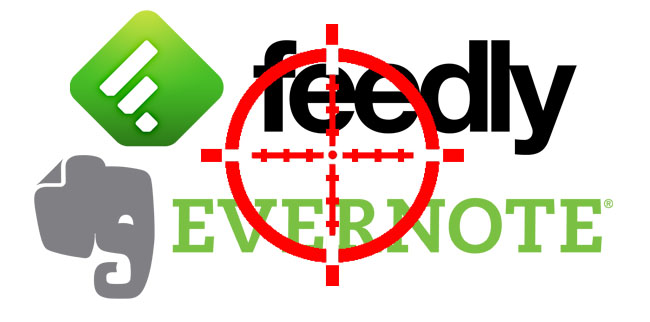Feedly, Evernote Hit with DDoS Attacks

It seems every day we hear about a new hack or security breach hitting one of the sites we like to use every day. Just last month, two high profile sites – Spotify and eBay – were subject to security breaches, with the latter compromise spurring three states to launch investigations into what happened, and whether it can happen again. Today, news broke that two other popular sites, Feedly and Evernote, have been hit with distributed denial-of-service, or DDoS attacks.
In a post on Feedly’s blog published late last night, the company laid out the situation facing its service:
“Criminals are attacking feedly with a distributed denial of service attack (DDoS). The attacker is trying to extort us money to make it stop. We refused to give in and are working with our network providers to mitigate the attack as best as we can.”
Evernote, with whom Feedly has partnered, posted this tweet yesterday evening, presumably before the Feedly attack hit:
We’re actively working to neutralize a denial of service attack. You may experience problems accessing your Evernote while we resolve this.
— evernote (@evernote) June 10, 2014
Early this morning, an update was added to the Feedly post:
“We’re making some changes to our infrastructure that will allow us to bring feedly back online. However, these things take some time to put into place and it may still be a few more hours before service is restored. Thank you so much for your patience and for sticking with us. Remember, none of your data was compromised or lost in this attack.”
That last part is pretty important, namely because so many of these sites and services store so much of our personal data. It’s good to know that Feedly was able to keep user data secure after the DDoS hit – and the extortion component of the attack also makes this seem less like an extensive security breach and more of an attempt for a quick cash grab.
Either way, it’s important to keep in mind that as safe as you might feel sharing data on the web, you should always keep your information on a tight leash. And change your passwords!
[Source: Feedly, TheNextWeb]